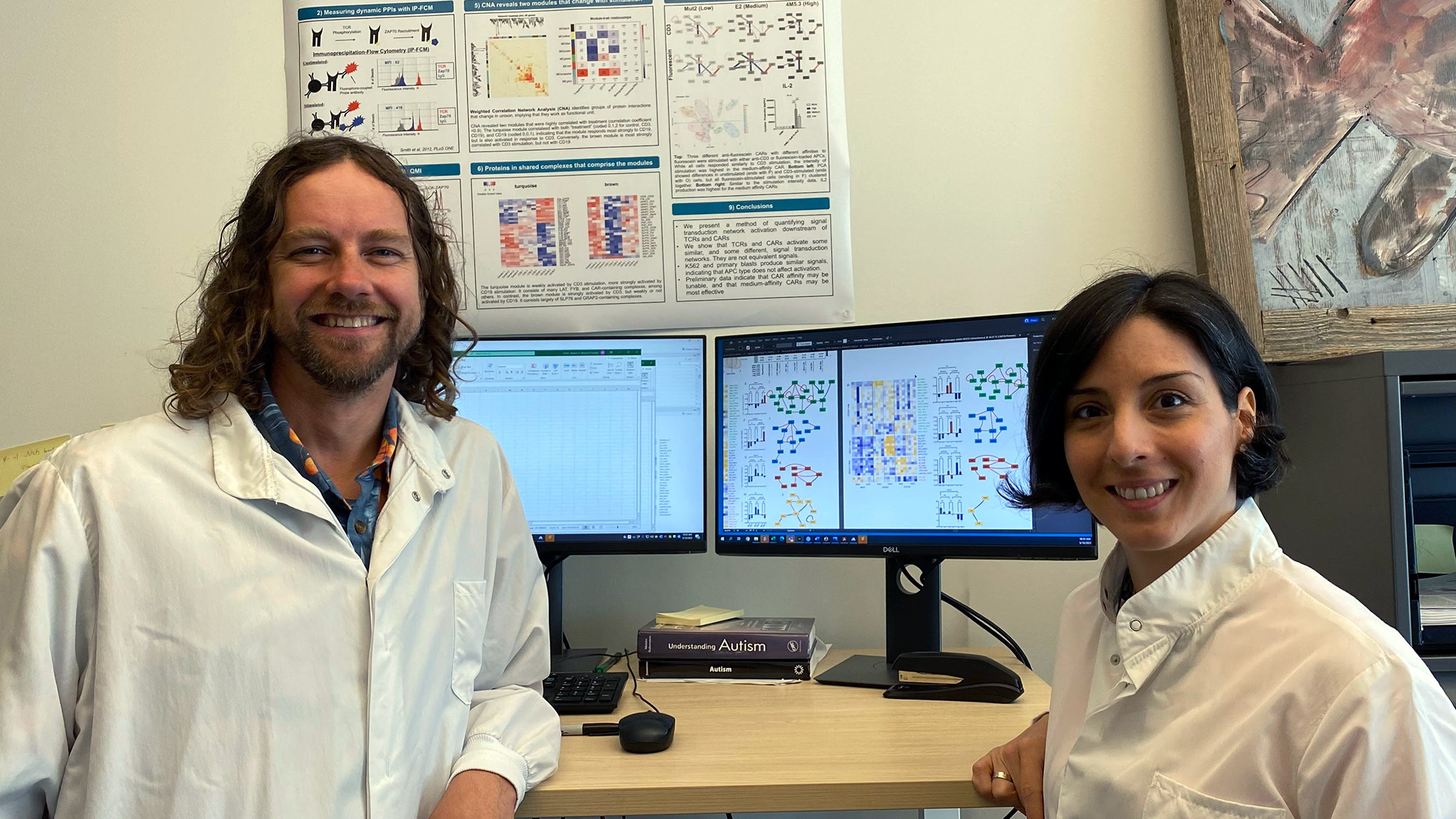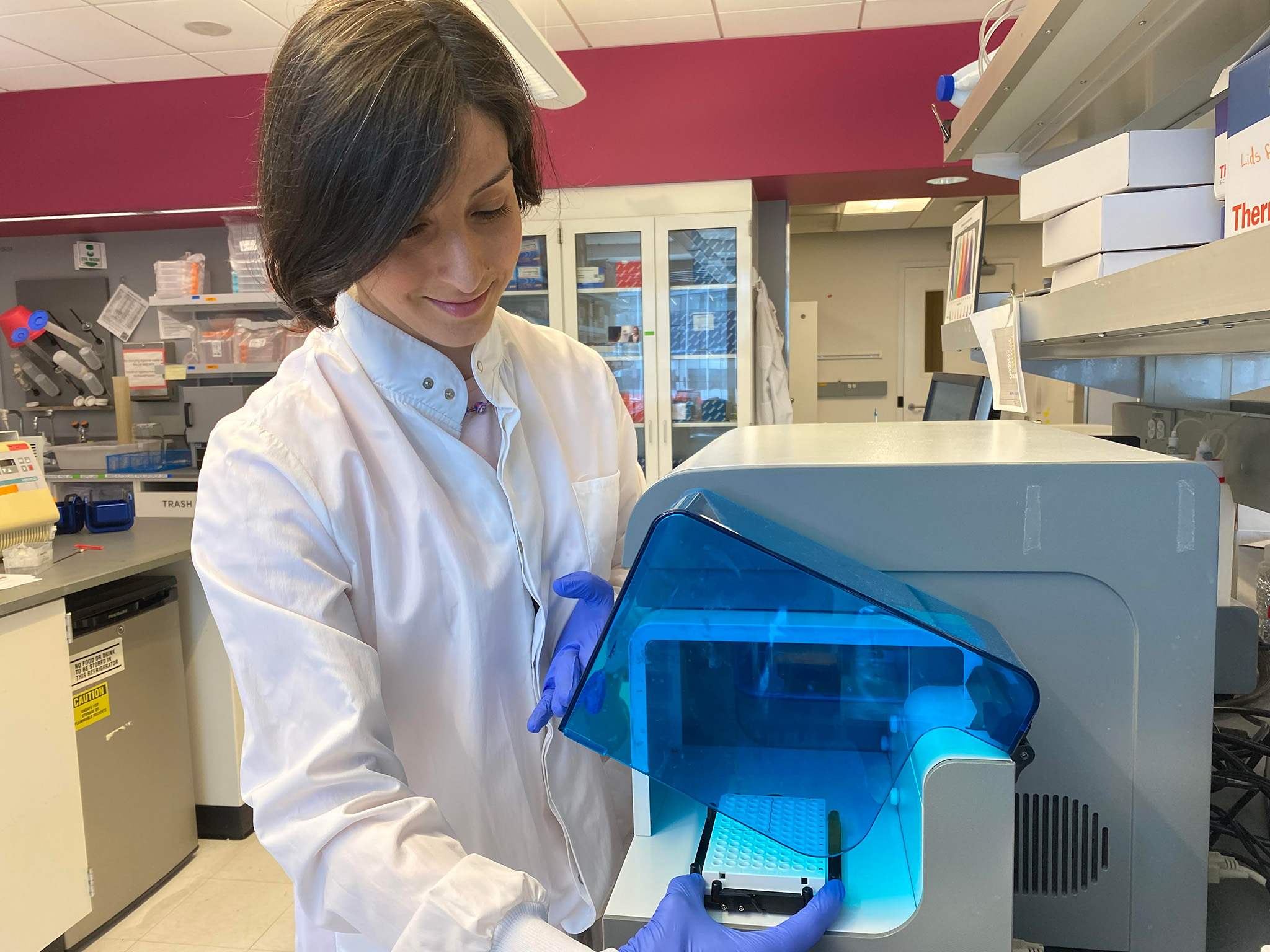Testing a SRC Family Kinase Inhibitor to Rescue Hyperactive Protein Synthesis, Behavioral Abnormalities and Altered Spine Dynamics in FMR1 KO Mice

Stephen E.P. Smith, PhD
Principal Investigator
Vera Stamenkovic, PhD
FRAXA Postdoctoral Fellow
Seattle Children’s Research Institute
Seattle, WA
2023-2025 Grant Funding: $100,000
Summary
The Smith lab has discovered a potential new approach to treating Fragile X syndrome using an investigational new drug originally developed to treat cancer. This drug, Saracatinib, is already in clinical trials for other disorders.
The Results
ARTICLE: SRC family kinase inhibition rescues molecular and behavioral phenotypes, but not protein interaction network dynamics, in a mouse model of Fragile X syndrome
The team's interim findings published on 1/31/2024 in Molecular Psychiatry.
The Science
By Stephen Smith, PhD and Vera Stamenkovic, PhD
The Smith lab measures how protein-protein interaction networks inside of neurons rearrange themselves in response to incoming signals, such as glutamate stimulation or changes in overall neuronal activity. We measured protein interaction networks in Fragile X mice and discovered that many interactions involving the kinase FYN were dysregulated, meaning that they were activated in the absence of external stimulation. We hypothesize that inhibiting this kinase may improve the molecular and behavioral phenotypes of the FMR1 mouse.
With this FRAXA grant, we will treat FMR1 knockout mice with Saracatinib, an FDA phase 2 kinase inhibitor that targets SRC family kinases including FYN. Saracatinib was originally developed by AstraZeneca as an anti-cancer drug. After treatment we will measure molecular and behavioral phenotypes thought to be important in Fragile X. Preliminary data indicate that inhibiting FYN may rescue elevated protein synthesis, learning and memory deficits, and social behavior in Fragile X mice.


